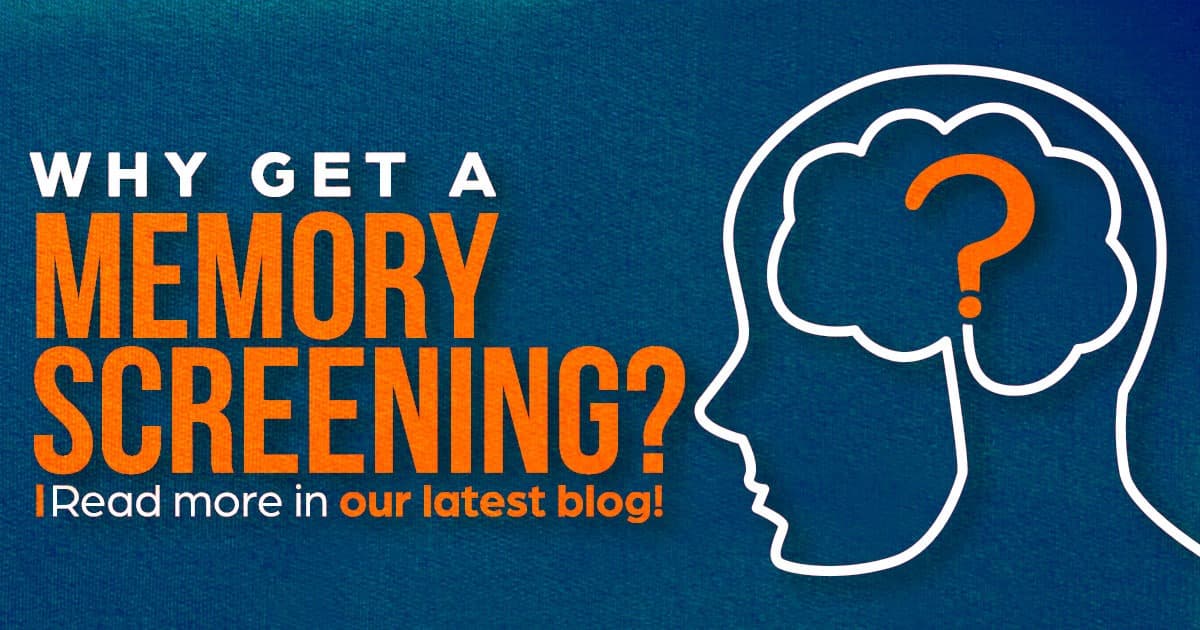Though some people are at higher risk, anyone can develop Alzheimer’s disease (AD). Recent studies show the chances of developing a form of dementia double every five years between the ages of 65 to 90. Since some memory loss is expected with aging, early signs of cognitive decline can go unnoticed. The first step in finding out the root cause of memory issues is to get a screening, and it’s the most important reason why you should get one.

What is a Memory Screening?
The screening consists of basic questions that you answer are either verbally or by writing. It is non-invasive and takes around 10 minutes to complete. The screener may ask you to count backwards, remember words, or write a sentence. Some online websites may claim they offer a free memory screening, but don’t be fooled. Your doctor or other healthcare professional should perform the screening to ensure accurate results.
Memory screens do not diagnose a specific condition or illness. Their purpose is to determine if you may need further evaluation.
Why Are They Important?
If results indicate a concern, a complete medical evaluation can help determine the cause of the memory issues. Mental health conditions, lack of sleep, medication side effects, and other illnesses can affect memory too. Many of which are treatable once addressed, so it’s essential to get checked out regardless. If Alzheimer’s or other dementia is the cause, early intervention allows you to play an active role in your finances and care while you are able.

Age, family history, and genetics are the main factors that increase your risk of developing Alzheimer’s. If you are over the age of 65, have an elevated risk, or have memory issues, you should get a memory screen annually with your regular checkups.
Free Memory Screenings at Pacific Research Network
Pacific Research Network is committed to educating our community about Alzheimer’s disease risk factors and the latest prevention information. Through these outreach efforts and the clinical research studies we conduct, healthcare for those diagnosed and their caregivers continue to improve. Our studies focus on prevention, treatment, and gaining a better understanding of the disease. Suppose your memory screen results recommend a full evaluation, and AD or other dementia is the resulting cause. In that case, our staff will talk with you about upcoming studies that may be an option.

Alzheimer’s disease causes a progressive decline in memory, reasoning, and thinking skills. Memory issues that interrupt daily life are among the many signs of dementia-related illnesses but are the most common. If you or a loved one have memory issues, get your brain health checked with a FREE memory screening here at Pacific Research Network. Take the first step today; call us at .
References:
https://www.alz.org/alzheimers-dementia/what-is-alzheimers/causes-and-risk-factors\
https://alzfdn.org/about-afas-national-memory-screening-program/




